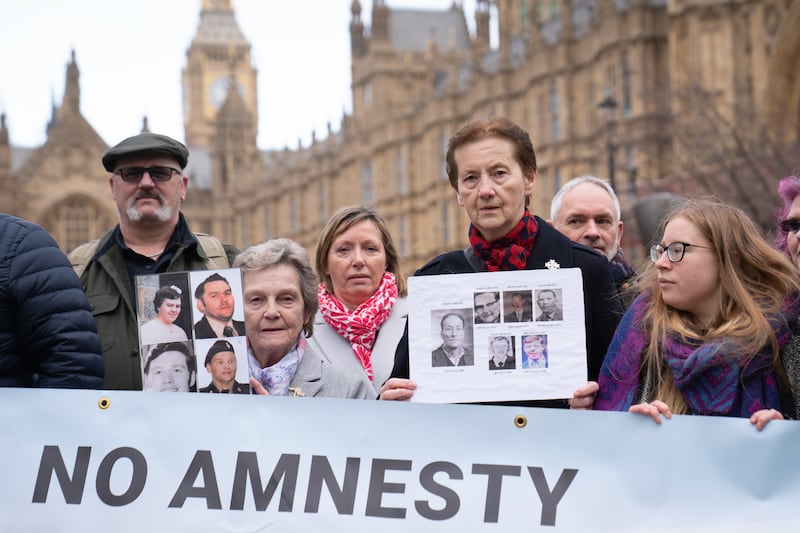THE partner of an INLA member who was killed during the Troubles has said her two young children should not be excluded from getting compensation.
It follows a suggestion from the outgoing Victims’ Commissioner, Ian Jeffers, who said that all families who lost loved ones during the conflict should receive a one-off payment – including relatives of paramilitaries.
During a debate on the BBC’s Talkback programme, a caller named Deirdre argued her children could not be held responsible for the actions of their father
“My partner/fiancé was murdered in 1996 during an INLA feud and I was left on my own with two babies under the age of one,” she said.
“From what I’m hearing people say is that those two babies are responsible for their father’s decisions and for people murdering him.
“Because he was murdered, regardless of who did it or what the background is.
“This whole 30 years of conflict is bigger than anybody who lives here. I don’t think politicians should be involved in this at all.”
Opposing the latest suggestion for compensation was Jennifer Jordan, who lost six family members through the Troubles including her father Clifford Lundy - an Ulster Defence Regiment veteran who was murdered outside the family home by the IRA 44 years ago on January 2.

“It was his first day back to work after the Christmas holidays…he was on his way home and he was murdered outside his own house,” she told the programme.
On Mr Jeffers’ proposals, she said it was matter of personal choice but one she could support.
“It seems again like it’s back to the old story. We are taking the victim and we are equating the victim to the perpetrator, which is totally morally wrong…the responsibility ripples down the line to each generation, surely?”
Supporting Mr Jeffers’ idea was Alan Bracknell who was six-years-old when his father was killed by loyalists in a bar in Silverbridge, Co Armagh, in 1975.
It left his mother to support three young children, including his two-day old sister.
“If we’re going to start to grow up in this society, we’re going to have to take some really hard choices,” he said.
“I think this is a difficult choice that some people will baulk at, but again the other point I would make is that over 50% of the deaths occurred before 1976.”
With his mother in her 90s, he said she didn’t have ten years for the debate on who qualifies as a victim to be resolved.
“For me, the family that is left behind – I don’t want to say compensated because that’s not the right word – it’s about acknowledgement and saying ‘what happened to you was wrong, and it happened to you because there was a conflict here’.”








